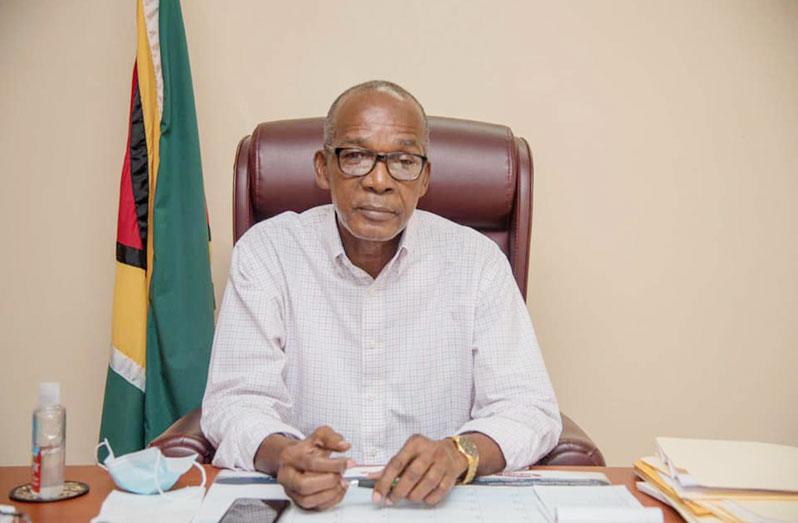— teachers who participate risk not being paid, warns Minister Hamilton
NOTING that today’s ‘Isolation Day’ organised by the Guyana Teachers Union (GTU) equates to illegal strike action, Minister of Labour Joseph Hamilton on Sunday said that teachers cannot be paid for the days that they do not work.
Minister Hamilton in a social media video message made it clear that the planned industrial action does not follow proper labour regulations, which include the need for notice to be given to the employer, in this case, the Ministry of Education (MoE).
“GTU called for an isolation day. While not being called a strike [it] can be deemed a strike as it calls for teachers to stop work,” Hamilton noted, adding that:
“Any industrial action is governed by the Collective Labour Agreement (CLA) between GTU and MoE. Common labour practice is that a period of notice be given to the employer before industrial action is taken. Moreover, labour relations practice would require the union to register its grievance with the MoE and enter a period of discourse before initiating any industrial action.”
Minister Hamilton noted that there was “no report of formal discussions between GTU and MoE regarding the COVID-19 issue before the call of the isolation day.”
It was last Friday that the GTU President Mark Lyte in a statement called for all teachers to refrain from going to school on Monday, January 10, which wa s deemed “Isolation Day.” On this day, all face-to-face and virtual classes would be suspended.
“Teachers of Guyana ought to be properly advised that heeding the call of the GTU to participate in the Isolation Day may be considered an unauthorised absence from work, abandonment of their students and gross dereliction of their duties. In this regard, the MoE will be under no lawful obligation to pay persons who are absent and abandon their post on Monday, January 10, 2022,” Minister Hamilton said in his message.

The GTU has also called for the Ministry of Education (MoE) to close schools for 14 days. However, the MoE has maintained that this has already severely affected the learners as there has been severe learning loss.
When the new school term began on January 3, schools were officially reopened for face-to-face classes for public school learners at almost every level. While some levels have classes every day, some were given the option to use a rotation or shift system.
Although some teachers and learners have tested positive during the first week, the MoE has pointed out that they did not contract the virus at school.
According to the Minister of Education, Priya Manickchand, those teachers and learners had contracted the virus five to 14 days prior, which is when they were home on holiday.
She noted that the horrid effects of prolonged absence from school has been repeatedly studied and documented, including by the United Nations Children Fund (UNICEF).
She pointed out that all the reports in the world say that school needs to be the last place to close, and the first to reopen. The minister emphasised that from all accounts, COVID-19 will not go away soon, and said that some parents are angry that the Ministry of Education has their children on rotation, as they prefer full-time school.
“The ministry will continue to do what is asked of us by the majority, while allowing for space for parents who don’t agree with the majority to do what is best for their children,” Minister Manickchand said.
She was also quick to point out that engaging ‘online’ in Guyana means that more than half the school population will go without an education because of no, or poor Internet infrastructure.












